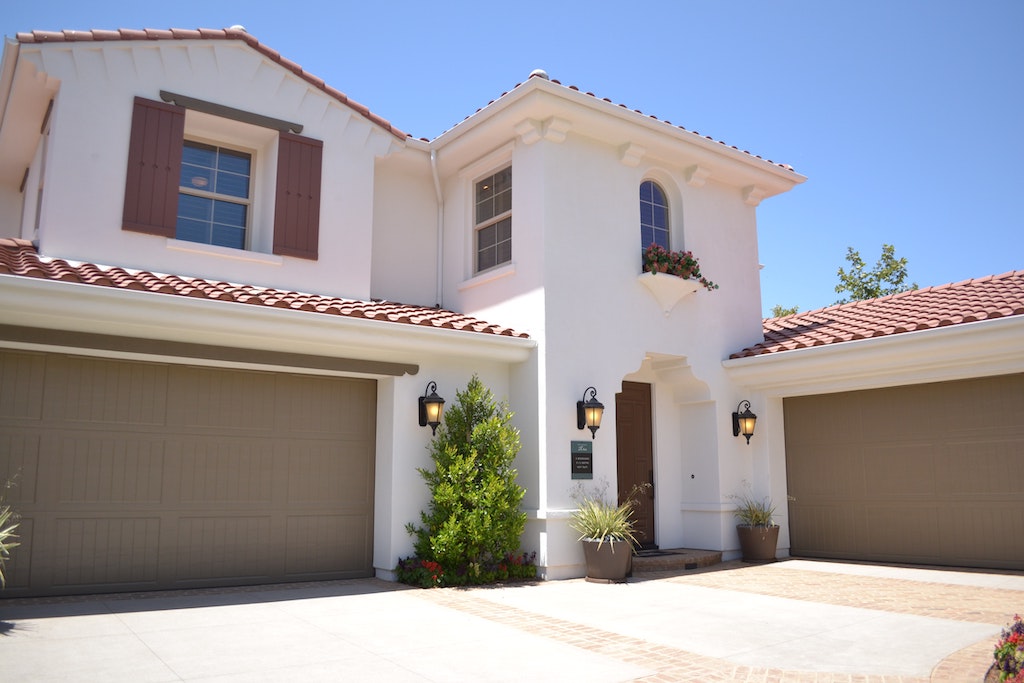Your home is not only a place of comfort but also a sanctuary for you and your loved ones. Taking proactive measures to ensure its security is essential in maintaining a safe living environment. There are 10 simple, yet highly effective tips to secure your home and protect what matters most. Whether you’re a homeowner, home buyer, lender, realtor, or simply someone looking to enhance home security, these practical measures will serve as valuable insights to fortify your property.
Reinforce entry points to secure your home
Securing your entry points is crucial in deterring potential intruders. Reinforce your front and back doors by opting for solid core or metal doors, which are more resistant to forced entry. Additionally, ensure that the door frames are reinforced and install secure deadbolt locks. According to a study by the National Institute of Justice, approximately 34% of burglars enter through the front door. By fortifying your entry points, you can significantly reduce the risk of unauthorized access.
Installing a peephole and a doorbell camera provides an extra layer of visibility and security. These devices allow you to see who is at your door before opening it, giving you the opportunity to verify their identity and make informed decisions about granting access. Doorbell cameras have become increasingly popular due to their convenience and effectiveness in deterring package theft and potential intruders.
Your windows and home safety
Windows are another vulnerable point of entry for intruders. Strengthen their security by installing window locks or considering additional security devices such as window security film. Window locks provide an added barrier against unauthorized entry, making it more difficult for burglars to access your home.
Reinforcing your windows significantly reduces this risk
Shatter-resistant window films are another effective option to consider. These films are designed to make it difficult for windows to break, even when significant force is applied. They provide an additional layer of protection, as the film holds the shattered glass in place, preventing easy access for intruders. This can buy valuable time for you to respond or for authorities to arrive.
Install a Home Security System
Investing in a reliable home security system is one of the most effective ways to protect your home. Modern security systems offer a range of features, including alarms, motion sensors, and surveillance cameras. The visible presence of security cameras can also act as a deterrent, as burglars are less likely to attempt a break-in if they know they are being recorded.
When choosing a home security system, opt for one that offers professional monitoring. This means that when an alarm is triggered, a monitoring center will be alerted and can quickly dispatch authorities if necessary. This immediate response greatly enhances the effectiveness of the security system. In addition to deterring potential intruders, home security systems provide peace of mind, allowing you to monitor your property remotely and receive alerts in case of any suspicious activities.
Outdoor lighting provides home security
A well-lit exterior is an excellent deterrent for potential burglars. Install motion-sensor lights around the perimeter of your home, particularly near entry points and dark corners. According to the U.S. Department of Justice, well-placed lighting can reduce crime by up to 39%. Adequate outdoor lighting not only discourages intruders but also provides visibility for you and your neighbors, making detecting any unusual activities in the vicinity easier.
Consider using energy-efficient LED lights for your outdoor lighting needs. LED lights consume less energy, have a longer lifespan, and produce brighter illumination compared to traditional incandescent bulbs. These lights can be programmed to turn on automatically when motion is detected, further enhancing security and reducing energy wastage.
Secure your garage
Many homeowners overlook the security of their garages, which can provide easy access to their homes if left unprotected. To secure your garage, always keep the garage door closed and locked, even when you’re at home. Installing a security system specifically designed for garages adds an extra layer of protection. These systems can include alarms, motion sensors, and even smartphone-controlled features that allow you to monitor and control your garage’s security remotely.
In addition to securing the garage door, consider reinforcing it with extra locks or deadbolts. Garage doors are often targeted by experienced burglars who know how to exploit their vulnerabilities. Reinforcing the door makes it more resistant to forced entry and significantly reduces the risk of unauthorized access.
Create the illusion of occupancy
One effective way to deter burglars is by creating the illusion that your home is occupied, even when you’re away. This can be achieved through various simple strategies. Use timers to turn lights on and off at different intervals, giving the impression that someone is home. You can also use timers for radios or televisions to create the illusion of activity inside the house. This can be particularly effective during the evening when darkness typically provides cover for criminal activities.
Additionally, piled-up mail or packages left on your doorstep can signal that you’re away, making your home an easier target for burglars. Have someone attend to these items, and you maintain the appearance of an occupied home, reducing the risk of break-ins.
Reinforce your home’s perimeter
Securing the perimeter of your property is an essential aspect of home security. Installing a fence around your property is a physical barrier and a deterrent to potential intruders. Choose a fence that is difficult to climb, such as those with pointed or curved tops. Solid fences provide more privacy but can also conceal potential criminal activities. Consider using a fence that combines visibility with security, such as one with slats or openings that allow you to see outside while maintaining protection.
Ensure that your fence has a secure gate with sturdy locks. A gate provides an additional layer of security by preventing easy access to your property. Regularly inspect the fence and gate for any signs of damage or weakness and promptly address any issues to maintain its effectiveness.
Another important aspect of securing your home’s perimeter is maintaining your landscaping strategically. Overgrown shrubs, bushes, or trees near windows and entrances can provide hiding places for intruders. Regularly trim vegetation around these areas to eliminate potential hiding spots.
Secure your Wi-Fi network
In today’s interconnected world, securing your Wi-Fi network is vital to prevent unauthorized access to your smart home devices and sensitive information. Change your router’s default username and password to something unique and secure. Many routers provide an option to generate a strong password for you. Avoid using easily guessable passwords, such as your name or address, and opt for a combination of letters, numbers, and symbols.
Enable network encryption on your router, preferably using WPA2 or WPA3. Encryption scrambles the data transmitted between your devices and the router, making it difficult for hackers to intercept and decipher the information. Regularly updating your router’s firmware ensures that any security vulnerabilities are addressed and patched, reducing the risk of exploitation.
It’s also worth considering creating a separate guest network for visitors. This keeps your primary network separate and limits access to certain devices and resources. Also, change your network’s default name (SSID) to something unique and avoid using any personally identifiable information.
Use smart technology for home security
Advancements in smart home technology have revolutionized home security. Integrating smart devices such as smart locks, video doorbells, and security cameras can significantly enhance the security of your home. Smart locks eliminate the need for traditional keys and provide convenient access control. You can grant temporary access codes to visitors, monitor who enters and exits your home, and receive alerts when someone unlocks the door.
Video doorbells have become increasingly popular due to their ability to provide real-time video and audio communication with visitors at your doorstep. These devices often have built-in motion sensors and can send notifications to your smartphone when someone approaches your door. Some video doorbells also feature package detection and facial recognition capabilities.
Security cameras are a valuable tool in deterring potential intruders and capturing evidence in case of a break-in. They provide continuous surveillance of your property and can be accessed remotely, allowing you to monitor your home from anywhere at any time. Some cameras even feature advanced functionalities such as night vision, two-way audio, and integration with voice assistants.
Opt for reputable smart home technology brands that prioritize security and privacy. Ensure that the devices receive regular firmware updates to address any security vulnerabilities. Follow best practices for device setup, such as using strong, unique passwords and enabling two-factor authentication whenever possible. Regularly review the privacy settings of your smart home devices to ensure that you have control over the data they collect and share.
Develop good security habits
In addition to implementing technological solutions, developing good security habits is fundamental to maintaining a safe home environment. Always remember to lock your doors and windows when leaving the house, even if it’s just for a short period.
Educate your family members about home security practices and establish clear guidelines for everyone to follow. This includes reminding them to lock doors, close windows, and arm the security system when leaving or going to bed. Reinforce the importance of not sharing sensitive information, such as alarm codes or Wi-Fi passwords, with anyone outside the immediate family.
Regularly inspect the condition of your doors, windows, and locks. Ensure they are in good working order and promptly address any signs of wear or damage. Maintenance and timely repairs play a crucial role in maintaining the effectiveness of your home security measures.
By implementing these 10 simple yet highly effective tips, you can significantly enhance the security and safety of your home. Reinforcing entry points, upgrading windows, installing a home security system, and developing good security habits are just a few of the measures you can take to protect your property and loved ones. Remember that home security is an ongoing process, and it’s important to stay vigilant and adapt to new technologies and strategies as needed. Prioritize your home’s safety today and enjoy the peace of mind that comes with knowing you’ve taken proactive steps to secure your home.



